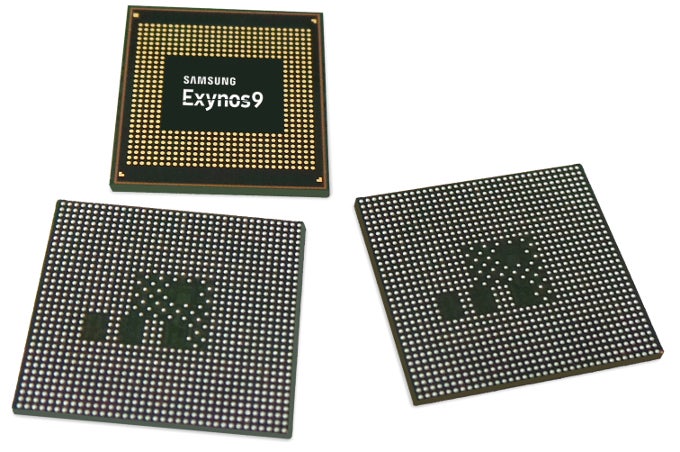Samsung unveils the eventual Galaxy S9 chipset, Exynos 9810

The first true 9-series Exynos is here, but it is still made with the 10nm process
Not an 8nm chipset, but with new graphics processor, and fast 1.2Gbps downloads
For instance, Samsung lists it as having "3rd-generation custom CPU cores, upgraded GPU, and gigabit LTE modem with industry-first 6CA support." Now, what would that more powerful graphics subsystem be, remains to be heard, but the 6CA (carrier aggregation) modem was already announced by Samsung back in the summer, and at the time it promised to fold it into its next-gen mobile chipset, apparently what it is doing now with the 9810. The Exynos 8895 in the Note 8 has a 5CA modem and 1Gbps peak download speeds, while the 6CA modem in the 9810 promises 1.2Gbps, and more stable downloads, getting Samsung "ready for the upcoming 5G era.".
At the time, Samsung hinted that the "mobile processor adopting the new Cat.18 6CA-supported LTE modem technology is expected to be in mass production by the end of this year," and the announcement of Exynos 9810 seems to fit this timeframe. Now, it remains to be seen if there will be another 9810, made with an 8nm production node, but if the Galaxy S9 is supposed to arrive earlier than usual, and is going into mass production next month, we wouldn't be surprised to see it land with the 7nm Snapdragon 845 in the US, and the 10nm second-gen Exynos 9810 for the rest of the world. The average user most likely won't be able to tell a difference anyway, so we can't wait for the first Exynos 9810 scores to start hitting the benchmark databases.
source: Samsung
Follow us on Google News













Things that are NOT allowed:
To help keep our community safe and free from spam, we apply temporary limits to newly created accounts: